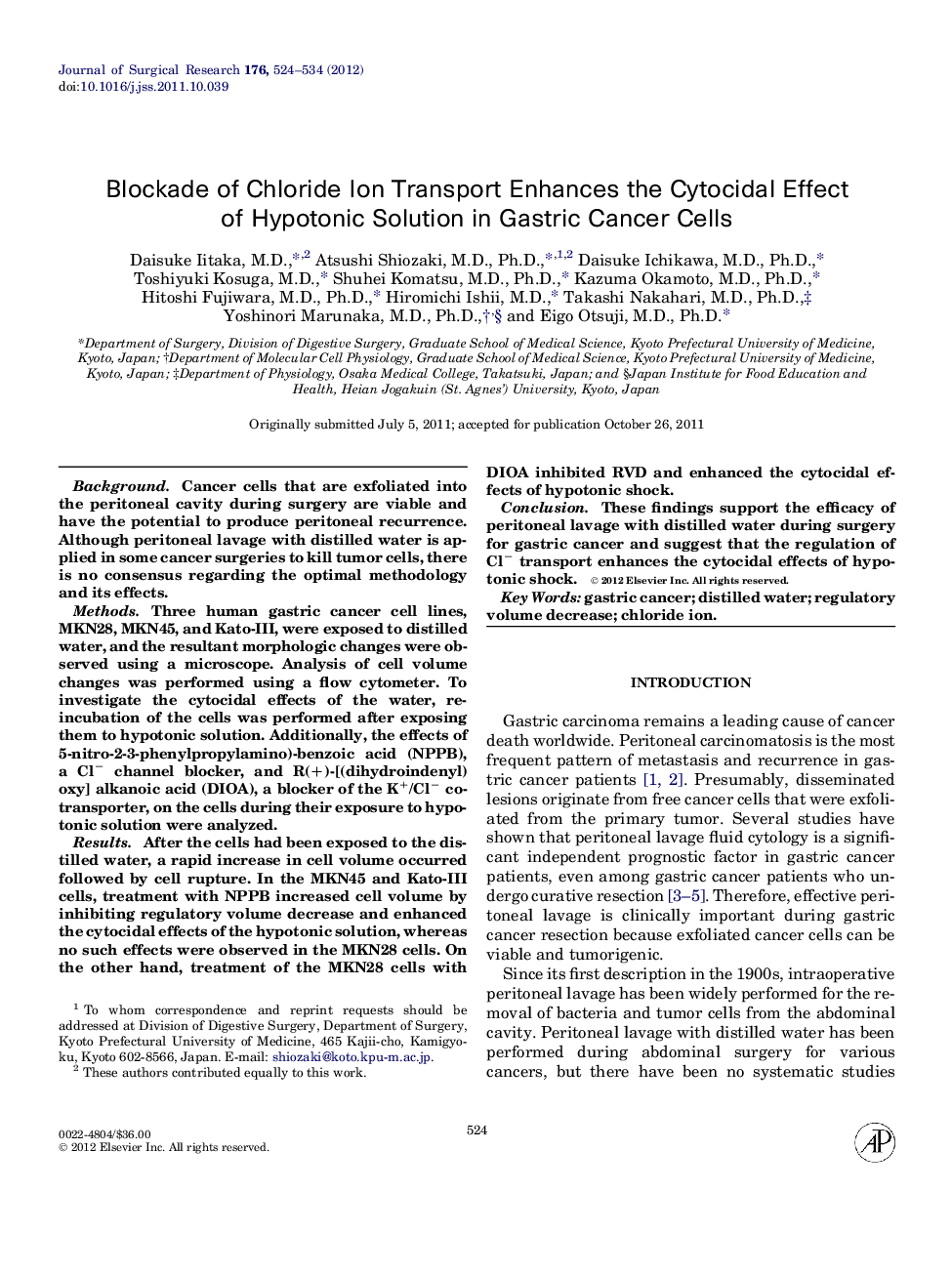| Article ID | Journal | Published Year | Pages | File Type |
|---|---|---|---|---|
| 4301936 | Journal of Surgical Research | 2012 | 11 Pages |
BackgroundCancer cells that are exfoliated into the peritoneal cavity during surgery are viable and have the potential to produce peritoneal recurrence. Although peritoneal lavage with distilled water is applied in some cancer surgeries to kill tumor cells, there is no consensus regarding the optimal methodology and its effects.MethodsThree human gastric cancer cell lines, MKN28, MKN45, and Kato-III, were exposed to distilled water, and the resultant morphologic changes were observed using a microscope. Analysis of cell volume changes was performed using a flow cytometer. To investigate the cytocidal effects of the water, re-incubation of the cells was performed after exposing them to hypotonic solution. Additionally, the effects of 5-nitro-2-3-phenylpropylamino)-benzoic acid (NPPB), a Cl− channel blocker, and R(+)-[(dihydroindenyl)oxy] alkanoic acid (DIOA), a blocker of the K+/Cl− co-transporter, on the cells during their exposure to hypotonic solution were analyzed.ResultsAfter the cells had been exposed to the distilled water, a rapid increase in cell volume occurred followed by cell rupture. In the MKN45 and Kato-III cells, treatment with NPPB increased cell volume by inhibiting regulatory volume decrease and enhanced the cytocidal effects of the hypotonic solution, whereas no such effects were observed in the MKN28 cells. On the other hand, treatment of the MKN28 cells with DIOA inhibited RVD and enhanced the cytocidal effects of hypotonic shock.ConclusionThese findings support the efficacy of peritoneal lavage with distilled water during surgery for gastric cancer and suggest that the regulation of Cl− transport enhances the cytocidal effects of hypotonic shock.
